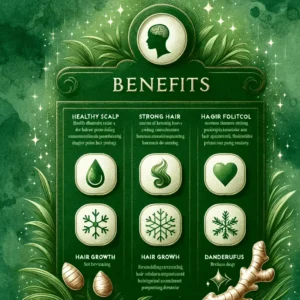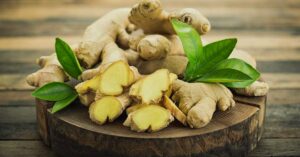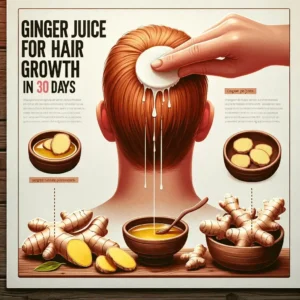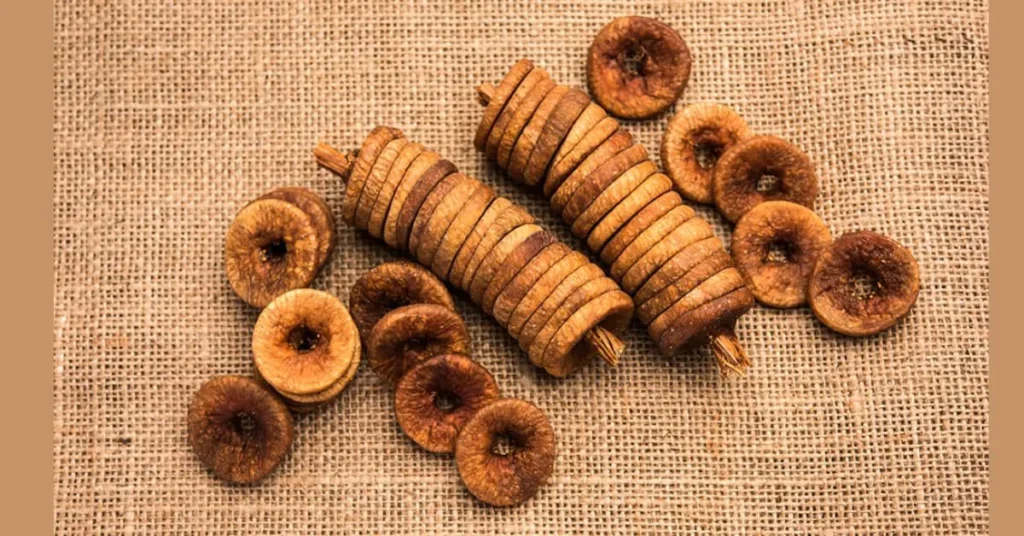A Natural Revolution in Hair Care
Ginger, a versatile ingredient known for its culinary and medicinal uses, is now gaining popularity in natural hair care. This guide uncovers ginger’s rich heritage and modern applications, showcasing its role as a natural alternative to conventional hair products. Explore the varied Ginger’s Benefits for Hair Care, grounded in both traditional practices and scientific research.
Ginger’s Transformation: From Kitchen to Hair Care
Originating from the Zingiber officinale plant, ginger has been a mainstay in traditional medicine, valued for its anti-inflammatory and healing properties. This section follows ginger’s evolution from a culinary staple to a promising hair and scalp health remedy, emphasizing its significance across different cultures.
Also read Ginger Tea | Health Benefits of Ginger Tea | Protection and Side Effects
The Complex Role of Ginger in Hair Growth and Scalp Health
Modern studies offer a nuanced understanding of ginger’s effects on hair growth and scalp health. We explore the dual nature of ginger – its historical use in promoting hair growth versus contemporary findings on its impact on scalp health and its unexpected role in hair removal.
Harnessing Ginger’s Benefits for Hair Care

Ginger is a remarkable ingredient for hair care, offering a range of benefits:
- Dandruff Management: Ginger, rich in gingerol and possessing antibacterial and antifungal qualities, is excellent for scalp health. It effectively combats dandruff, which is known to impede hair growth.
- Strengthening Hair Roots: The natural properties of ginger fortify hair from the roots, promoting density and robustness and reducing the likelihood of hair breakage.
- Calming Scalp Irritation: Ginger’s soothing capabilities are ideal for relaxing irritated or inflamed scalps. It also infuses the scalp with crucial nutrients like zinc, phosphorus, and magnesium, boosting blood flow and enhancing scalp health.
- Improving Softness and Shine: Regular use of ginger can lead to softer, smoother hair with a lustrous sheen. Ginger’s fatty acids, vitamins, and minerals are vital in repairing and revitalizing damaged hair cuticles.
Practical Uses: Incorporating Ginger in Hair Care

Creating Your Ginger Hair Mask
Ginger hair masks are a fantastic way to harness the benefits of ginger for your hair. Here’s how you can create your own:
-
Essential Ginger Hair Mask:
-
- Grate a fresh ginger root to obtain about 2 tablespoons of ginger pulp.
- Mix the ginger pulp with a carrier oil like coconut or olive oil. Use about 3 tablespoons of oil for every 2 tablespoons of ginger.
- Apply the mixture to your scalp and hair, gently massaging it in.
- Leave the mask on for 30 minutes.
- Rinse off with a mild shampoo.
-
Ginger and Honey Mask for Moisture:
-
- Combine 1 tablespoon of grated ginger with 2 tablespoons of honey.
- Add a small amount of water to achieve a paste-like consistency.
- Apply to your scalp and hair, and leave it for 20-30 minutes.
- Wash off with lukewarm water and shampoo.
-
Ginger and Yogurt Mask for Dandruff:
-
- Mix 2 tablespoons of ginger paste with 3 tablespoons of yogurt.
- Apply the mixture to your scalp, focusing on the areas with dandruff.
- Leave it on for 30 minutes before rinsing.
The Ginger’s Benefits for Hair Care Oil for Scalp Massage

Ginger oil can be a potent scalp treatment. Here’s how to use it:
- Mix a few drops of ginger essential oil with a carrier oil like jojoba or almond oil.
- Gently massage the oil blend into your scalp for a few minutes.
- The massage stimulates blood flow, and the ginger oil can help nourish the scalp.
- Leave the oil in for at least 30 minutes or overnight for deeper nourishment.
- Wash out using your regular shampoo routine.
Safety First: Usage Precautions and Tips
While ginger is a natural product, it’s essential to use it cautiously to avoid any adverse reactions:
- Patch Test: Before applying ginger or ginger products to your scalp, always perform a patch test. Apply a small amount to your inner arm and wait 24 hours to check for any irritation or allergic reaction.
- Concentration: Be mindful of the attention of ginger, especially when using essential oil. It should always be diluted with a carrier oil.
- Sensitive Scalp: If you have a sensitive scalp, start with a milder concentration and shorter application time.
- Avoid Eyes: Keep ginger and ginger mixtures away from your eyes to prevent irritation.
Pros and Cons
Pros:
- Natural and minimal side effects
- Easy and cost-effective to use
Cons:
- Not suitable for all hair types
- Potential for skin irritation
- Requires consistent use for visible results
FAQs about Ginger’s Benefits for Hair Care
Q: How often should I use ginger on my hair?
A: Weekly use is recommended for best results.
Q: Can ginger help with hair loss?
A: Ginger can help reduce hair loss by strengthening hair follicles.
Calculations
- Amount per Treatment: Roughly 2 tablespoons of grated ginger.
- Cost Comparison: Significantly cheaper than many commercial hair treatments.
Conclusion
While ginger’s benefits for hair remain a topic of debate, its anti-inflammatory properties may be helpful for some scalp conditions. However, it’s essential to approach ginger treatments with realistic expectations and caution. Consider consulting a healthcare professional before starting any new hair care regimen, especially if it involves natural remedies like ginger.


